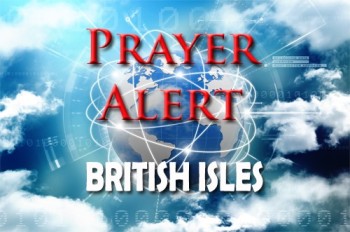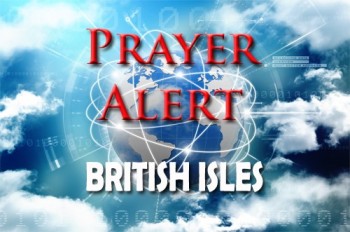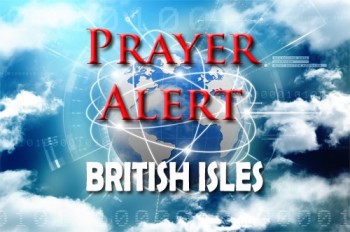Displaying items by tag: fishing industry
Starmer close to EU arms deal - at the expense of fishermen
The UK is nearing a pivotal defence and trade agreement with the EU that could grant British arms companies access to a €150 billion European defence fund. In return, Keir Starmer’s government appears ready to concede on fishing rights - an issue that has stirred strong domestic opposition. The arrangement includes freezing fishing quotas and moving to a multi-year deal, rather than annual negotiations, in exchange for wider EU market access for UK defence firms. Critics argue this trade-off risks sacrificing the UK fishing industry’s post-Brexit gains. The National Federation of Fishermen’s Organisations has labelled the deal 'neocolonial’, with significant UK quotas already owned by foreign boats. Still, the economic contrast is stark: defence exports total £14.5 billion annually, compared to £1.7 billion in fish sales. The summit on 19 May is expected to formalise broader EU cooperation, including defence partnerships, dynamic alignment on food standards and emissions, and a debated youth mobility scheme. Starmer insists these moves are strategic steps toward global stability, security, and economic resilience amidst growing international challenges.
UK fishermen fear losing homes
Since 1 January, the European Union has stopped British fishermen from selling oysters, scallops, clams, cockles and mussels, known as live bivalve molluscs (LBM), that are caught in so-called ‘Class B’ waters. The government says it is seeking an ‘urgent resolution’, while the European Commission said that the ban, on health grounds, applies to all third countries and ‘is not a surprise’ to the UK. Meanwhile Cornish shellfish workers are at risk of losing their homes because of the overnight ban on exporting their product to the EU. 65-year-old Tim Heard, who has been catching oysters for fifty years, is just one of the many who have seen their income completely stop.The environment department said, ‘It is unacceptable that the European Commission has changed its position regarding the export of live bivalve molluscs from Class B waters. There is no scientific or technical justification for this, and it is already impacting businesses on both sides of the Channel’.
After-Brexit hiccups: shellfish trucks protest
On 18 January more than twenty shellfish trucks parked just metres from Boris Johnson’s Downing Street office and the British parliament to protest against the post-Brexit bureaucracy that has stopped them exporting to the EU. Many Scottish fishermen have not been able to export their stocks to Europe since the start of the year after the introduction of catch certificates, health checks and customs declarations added lengthy delays to their delivery times, prompting European buyers to reject them. A director of Venture Seafoods, which exports live and processed crabs and lobsters to the EU. said he had cancelled several lorries due to the onerous red tape involved. One operator needed 400 pages of export documentation last week to board a ferry to the EU. He warned the system could collapse.
Post-Brexit trade talks to continue
Negotiations for a post-Brexit trade deal between the UK and EU are expected to continue next week as the deadline draws nearer. The two sides resumed talks in London this week, with a UK government source saying they were in the ‘final stage’. But big gaps still remain, and the UK described the EU’s position on fishing access as ‘wholly unrealistic’. Boris Johnson is prepared to move forward without a deal. If nothing is agreed, the UK will trade with the bloc on World Trade Organisation rules - leading to tariffs on many imports and exports, which could push up costs for businesses and consumers. Both sides say they want to avoid this outcome, but the EU will not do a deal ‘at any price’. Mr Johnson said the UK will prosper either way.
Large-scale money laundering exposed
Iceland’s largest fishing company, Samherji, exploited legal loopholes and secrecy jurisdictions to enable corruption and environmental exploitation on a global scale. It used an anonymous shell company to launder and transfer 70 million dollars’ worth of illegal fishing activities off the coasts of West Africa, and bribed members of the Namibian government. Two Namibian ministers have already resigned over allegedly giving preferential access to fishing grounds. Samherji used shell companies in Dubai, Mauritius and Cyprus. Most of the money was traced to a bank account at a state-owned bank: the bank’s largest shareholder is the Norwegian state, which holds a 34% stake.
Thailand: slavery in the seafood industry
Thailand is the third largest seafood exporter in the world. The industry relies heavily on trafficked and forced labour on unlicensed vessels. Many victims are from Cambodia, Laos and Burma. Beatings and starvation are commonplace. The Thai government claims it is regulating the fishing industry more tightly, yet slavery persists. The International Justice Mission (IJM) works with other bodies to rescue victims trafficked into Thailand’s fishing industry, and creates individualised care plans to meet survivors’ physical, psychological and emotional needs so that they can thrive in freedom. IJM requests prayer for favour and wisdom as the team builds relationships with police and prosecutors in both Thailand and Cambodia (where many of the traffickers target victims).





